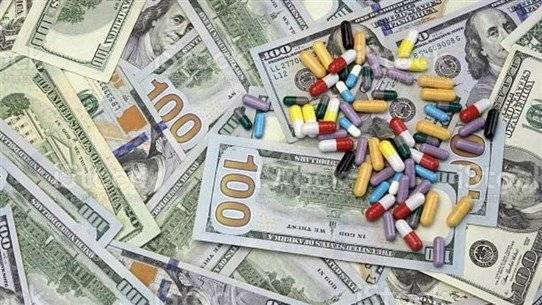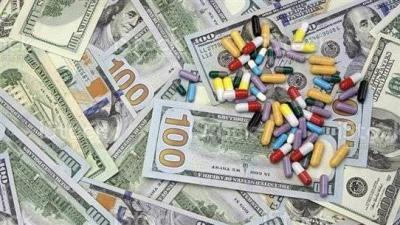The Ministry of Public Health issued the new "exchange rate" for the medicine price index yesterday, setting it at 29,600 Lebanese pounds instead of 26,000. However, this new issuance did not go smoothly this time. Since its implementation, there has been an uproar among those involved in the sector, from pharmacists to importers to warehouse owners, rejecting the "bait thrown by the Ministry of Health," as one of them puts it. This will translate starting today into the following conclusion: no more medicines.
The drug crisis is no longer limited to patients' lack of access to their right to treatment, nor to the greed practiced by importers and warehouse owners; it has expanded to become "a problem with the exchange rate of the index." The issue lies in the conflicting views among three parties: the Ministry of Public Health, pharmacy owners, and importers, regarding the pricing value. While importers demand that prices be set closer to the dollar exchange rate, which approached 38,000 pounds yesterday, the ministry has decided to maintain it at around thirty thousand for two main reasons: first, what officials from the Ministry of Health, including the minister, stated during recent discussions with importers and pharmacists that "importers imported drugs at an exchange rate of 26,000 pounds, and the price of 29,000 should be fair." Second, "we cannot place the large loss all at once on the citizens," as stated by Minister of Public Health, Firas Abyad, to "Al-Akhbar." According to Abyad, since the loss is significant, "everyone should bear it," as it is a collective responsibility and not an individual one.
What Abyad says does not align with the views of importers and pharmacists. From the perspective of importers, importing a shipment of medication at an exchange rate of 26,000 pounds does not mean delivering it to pharmacies and hospitals at the ministry's proposed price. Their justification is that the indicator's exchange rate, based on which they sold, will not cover even a portion of what they will need to purchase based on the dollar exchange rate in the black market.
This is why the response was decisive in meetings with the Ministry of Health before the issuance of the index: no delivery, sale, or purchase would take place. This will subsequently reflect on conditions in pharmacies, as most complain, especially in regions, about "a lack of delivery." One pharmacist mentioned that "for the past ten days, we haven't received a single pill of medicine, and we couldn't meet our patients' demands." Pharmacists criticize both parties: the ministry, which "is shirking its role, as it should pressure importers to deliver goods that they purchased at the 26,000 price and be more lenient in the index price, especially given the rise of the dollar," and importers who "are already refusing to deliver. How will it be now in light of the issuance of an index they rejected before it took effect?" This reality, according to the President of the Pharmacists’ Syndicate, Joe Saloum, leads to "chaos," while at the same time calling for "working towards finding definitive solutions instead of temporary ones like the medicine index and support rounds."
Amid this chaos, activities of what are now referred to as "bag traders" have increased, who today smuggle medicines from neighboring countries and sell them to pharmacy owners. In this context, one pharmacist noted that "one bag trader offered me a set of insulin syringes for diabetic patients and other medications that originally require specific storage conditions and packaging!" The question here is: who monitors this chaos? Who guarantees the safety of patients from smuggled medicines which have begun to be sold like "candy"?
As the dollar's value decreased in the evening, and the market price approached the new index price, Abyad questioned: "Will medicines be delivered to pharmacies? Will pharmacies sell the drugs they have in stock?" considering that the hour of truth has arrived.




